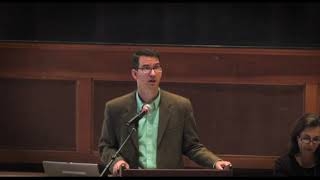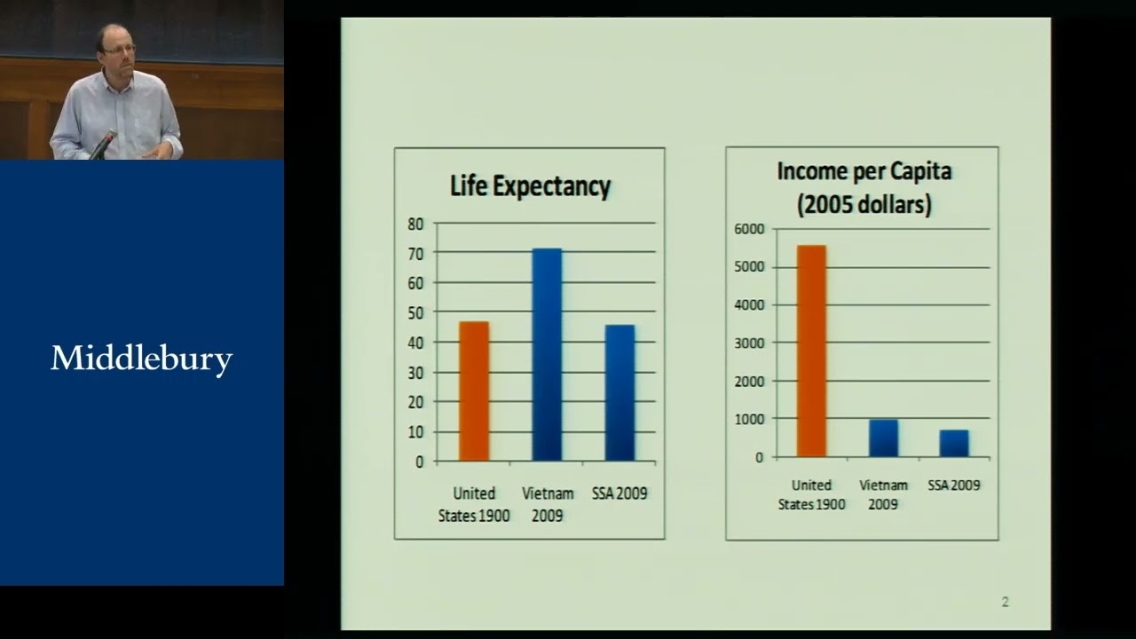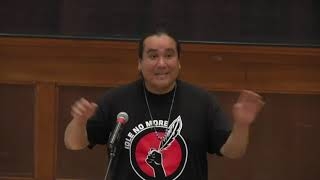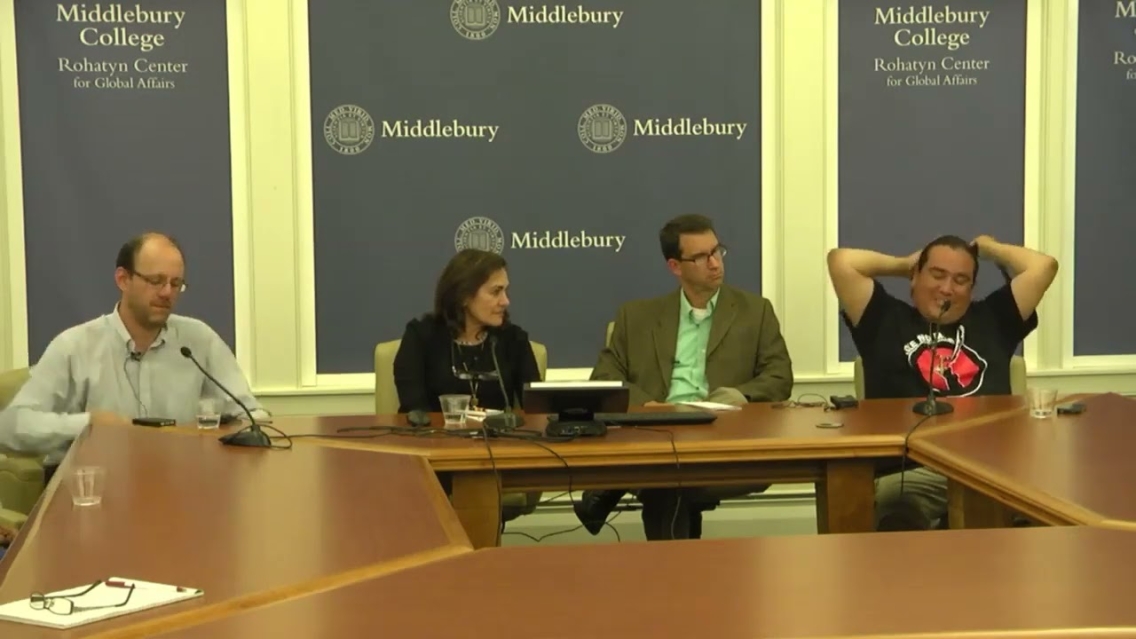Global Inequalities Examined at Symposium
MIDDLEBURY, Vt. — The challenges posed by global inequalities in gender, public health and the environment were the subject of the second annual International Politics and Economics Symposium at Middlebury College on Sept. 20.
The college invited three experts — one from Harvard University, one from Northeastern University and one from the Cree Nation in Manitoba — to spend the day on campus, meet with students and faculty, present a lecture, answer questions and explore solutions together.
President Ronald D. Liebowitz opened the symposium by giving examples of the staggering gulf between poor and rich in the world today. The life expectancy today for a child born in Sierra Leone is just 48 years versus 82 years for one born in Australia, he said, and a mother in sub-Saharan Africa is 41 times more likely to die in childbirth when compared to a mother in North America.
“The resulting inequality in opportunity and outcome, if not addressed, will have dire consequences for social justice, economic efficiency and global stability in the 21st century,” the president said.
The guests were Michael Kremer, a professor of developing societies at Harvard and a senior fellow with the Brookings Institution; Valentine Moghadam, a professor of sociology and director of international affairs at Northeastern University; and Clayton Thomas-Muller, an activist for indigenous rights and environmental justice for the Mathias Colomb Cree Nation in Manitoba. Their lectures are presented below in video format.
Video of Panel One, Valentine Moghadam on “Globalization, Women and Work in the Middle East: Toward Economic Citizenship”
Video of Panel Two, Michael Kremer, on “Health Behavior: Puzzles and Policies”
Video of Panel Three, Clayton Thomas-Muller on “Native Rights Based Approach: Canada’s Last Best Effort to Save Our Water, Land and Air from Tar Sands”
Video of the discussion with the three panelists moderated by Professor Erik Bleich
Following the symposium, Erik Bleich, professor of political science and director of the International Politics and Economics Program at Middlebury, reflected on the day’s proceedings. He said:
“In an era of increasing distance between the haves and the have-nots, our speakers talked about their experiences working with Middle Eastern women who did not have access to jobs, the rural poor in Kenya who are still dying of curable diseases and indigenous communities in northern Alberta whose water is being poisoned by tar sands extraction.
“They sensitized us to these tragedies, but in the end, they each were hopeful because people are mobilized to fight these inequalities, and because they believe the fight can be won.”





